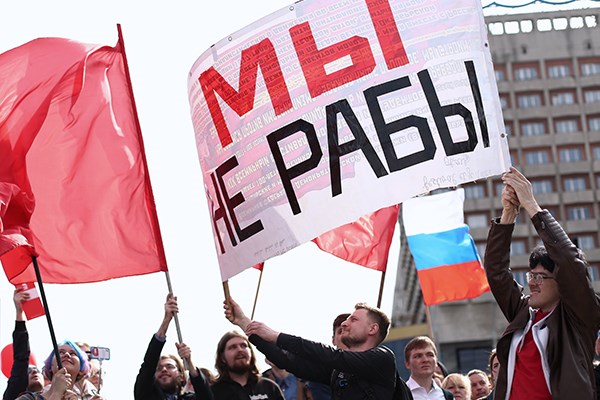Two thirds of Russians speak of 'overall degradation' of government
The Russian population at large is becoming increasingly convinced that the country’s government is totally corrupt. The arrests of high-ranking officials are perceived not as evidence of the fight against corruption, but merely a show, or evidence of infighting between members of the elite.
This was the conclusion reached by the Levada Center’s survey in February dedicated to the Rauf Arashukov case. Arashukov, a former senator from Karachay-Cherkessia, was arrested during a session of the Federation Council on charges of organizing two killings and of stealing gas alongside his father, the twice-convicted assistant to the director of Gazprom Mezhregiongaz, Raul Arashukov.
According to Levada, 68% of polled Russians consider the cases of bribery, the large quantities of undeclared funds found in the officials’ possession, their arrest and prosecution to be “a manifestation of the overall degradation and corruption of the government”.
Compared to 2016, the number of such responses has grown by 4 percentage points. The number of people who consider such incidents “isolated and atypical” has dropped from 27% to 22%.
25% of respondents believe that the arrest of the Arashukovs is evidence of “the serious fight against corruption in the government apparatus”. However, more than half of those polled believe that this case is merely a consequence of either “the struggle for influence” (31%) or intended to “draw attention away from the real problems in the economy” (23%).
Most Russians dismiss the Arashukov scandal as a routine development in light of total government corruption, Levada Center director Lev Gudkov explained: “These showdowns between different clans are also quite a persistent setting. The more informed and educated people are, the stronger their convictions about this. For example, in Moscow, 82% consider this a sign of general government corruption.”
The people who seriously consider it a sign of combating corruption are the elderly and not as well educated people from the provincial regions, and the majority of the youth do not know anything about the Arashukovs’ arrest, the sociologist notes.
When Minister of Economic Development Alexey Ulyukaev was arrested in 2016, many were still surprised, because he was from the liberal camp, which often talks about integrity in politics, Gudkov adds: “In this case, with respect to the members of the Caucasian republics, there is no such thinking, it is all perceived as a showdown between local clans, and people are convinced that they are corrupt.”
